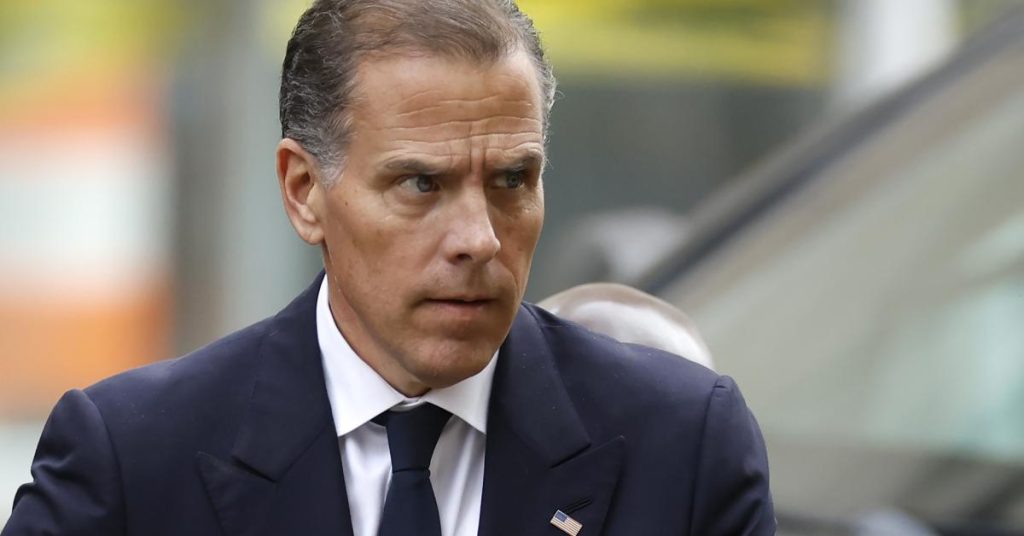Hunter Biden was involved in meetings about pardons, former Biden chief of staff testifies
Jeff Zients, President Biden’s former chief of staff, told House Oversight Committee members that Hunter Biden took part in last-minute discussions about pardons as the administration wound down. The testimony was given behind closed doors during the committee’s probe into the president’s mental fitness. Those details sharpen a basic question: how much sway did a first son exercise inside the West Wing?
Zients’ account included a direct, striking line: Hunter “involved” himself in the meetings about pardons shortly before his father’s term ended, Zients testified. That sentence alone changes the scene from rumor to formal allegation ready for scrutiny. It demands answers about who was in the room and what was on the table.
We already know Hunter Biden faced serious legal trouble. He was convicted on three federal gun charges in June 2024, and later entered a plea that included nine counts in a federal tax-fraud case, with three felonies and six misdemeanors. Those convictions and pleas make any suggestion of involvement in clemency talks politically explosive and ethically fraught.
What this means politically
From a Republican perspective, the moment is straightforward: public servants must not let family members interfere in extraordinary exercises of executive power. Pardons are one of the most sensitive and least transparent presidential powers, and allowing a relative into those decisions erodes public trust. The committee is right to demand a full accounting.
Republicans will argue that even the appearance of impropriety matters, especially when the beneficiary has unresolved criminal matters. That appearance can weaken the rule of law and central institutions Republicans claim to defend. The GOP message will be simple: no one is above scrutiny, not even the president’s family.
Oversight hearings should aim to produce facts, not theater, but these are facts that already make Americans uneasy. Who requested the meetings? What topics were discussed? Were specific individuals or cases named? Those are basic records that should be turned over without delay.
Legal standards and ethics
The constitutional power to pardon is broad, but conventions and internal controls usually limit its political contamination. Typically, White House counsel and the Department of Justice offer formal recommendations and vetting, insulating the president from raw, personal lobbying. If a family member is steering or influencing decisions, that firewall is compromised.
Ethics rules and conflict-of-interest norms exist for a reason: to prevent private gain from public office. Hunter Biden’s recent convictions and pleas place him squarely in the kind of situation those norms were designed to address. If White House staff let him participate, the administration owes the public a clear explanation.
Transparency is not a partisan luxury; it is the minimal currency of trust in a constitutional system. Republicans will press for documents, witness lists, and contemporaneous notes that show what was actually discussed and by whom. The goal is to build a record citizens can assess rather than speculate about.
What oversight should demand
The Oversight Committee should subpoena any White House calendars, email threads, and memos connected to the meetings Zients described. They should also seek testimony from anyone who attended or prepared materials for those sessions. If the White House resists, Republicans will frame that resistance as obstruction.
Congressional oversight is blunt by design and necessary by practice when executive power touches private interests. That means public hearings if closed-door testimony leaves unanswered questions. Republicans will push to make the record public and to follow it wherever it leads.
At a minimum, the public deserves a timeline: when the meetings occurred, who authorized them, and what recommendations or actions were proposed. Absent those details, all Americans are left to wonder whether justice was being administered or negotiated. Republicans will argue the default answer should be transparency until proven otherwise.
Wider implications for governance
This episode also raises broader concerns about governance and presidential fitness, which the committee is explicitly examining. If family members are routinely involved in high-stakes decisions, that suggests either a breakdown in process or an attempt to convert personal relationships into policy outcomes. Both possibilities are troubling in different but real ways.
Republicans will say the stakes extend beyond one case or one presidency: permitting informal influence invites corruption. That argument is not merely partisan; it is a warning about institutional degradation. The GOP position will focus on restoration of norms and clearer boundaries between family and state.
Ultimately, voters will judge how the administration responds. A prompt release of records and full cooperation could blunt criticism, while delay and partial disclosures will amplify it. Republicans intend to keep this issue in the spotlight until the public sees all the facts.
Jeff Zients’ testimony moved the conversation out of rumor and into documented allegation, and that changes the political dynamic. For those who care about the separation between private interest and public duty, this is a defining moment. The House Oversight Committee now has the responsibility to follow the paper trail and let Americans decide what it all means.

1 Comment
Lock this evil bastard up once and for all!!!
GITMO NOW!!!